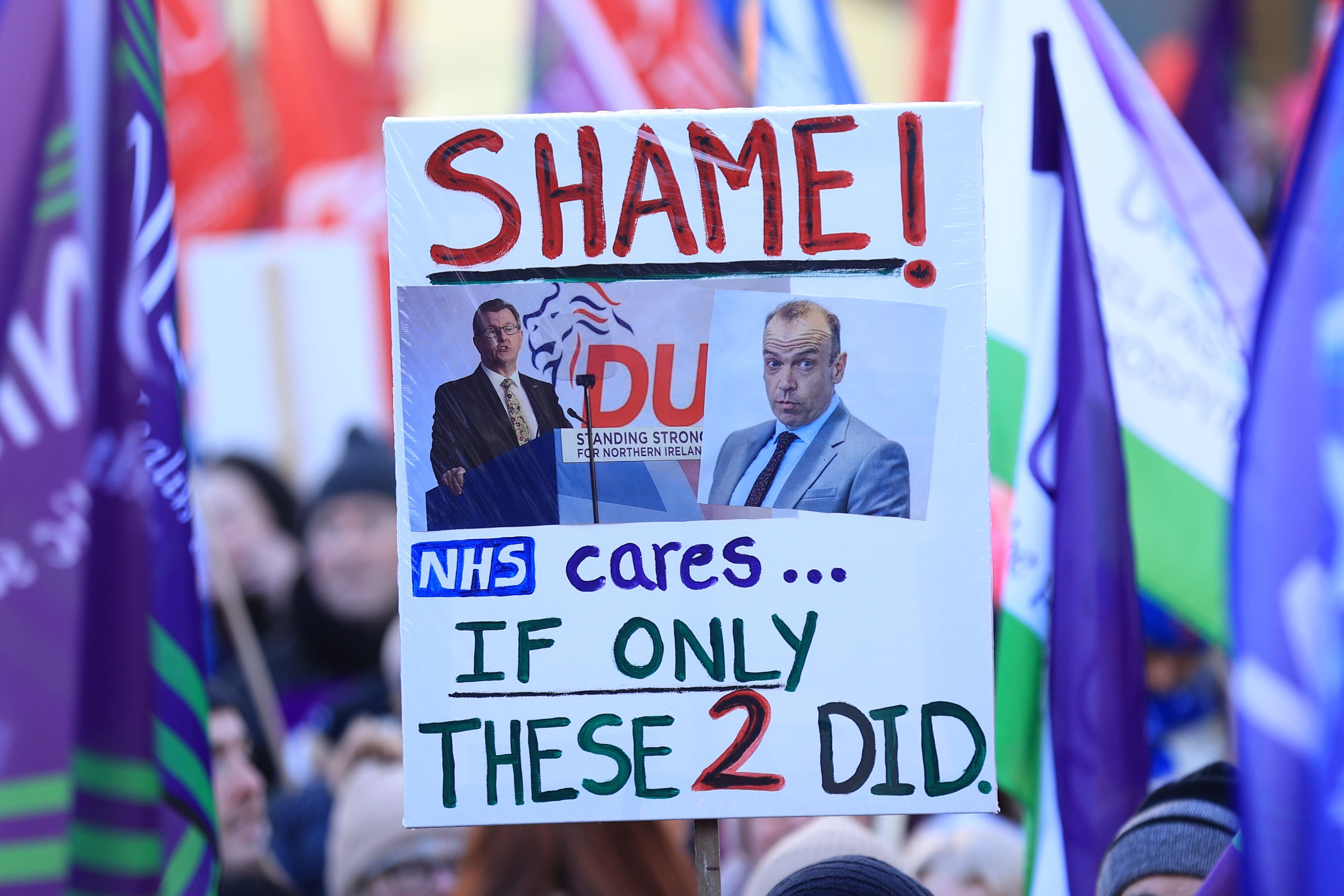DUP Stormont boycott seriously scarring Northern Ireland – Alliance MP
A meeting between some senior DUP officers has been described as ‘Game Of Thrones stuff’.

Your support helps us to tell the story
From reproductive rights to climate change to Big Tech, The Independent is on the ground when the story is developing. Whether it's investigating the financials of Elon Musk's pro-Trump PAC or producing our latest documentary, 'The A Word', which shines a light on the American women fighting for reproductive rights, we know how important it is to parse out the facts from the messaging.
At such a critical moment in US history, we need reporters on the ground. Your donation allows us to keep sending journalists to speak to both sides of the story.
The Independent is trusted by Americans across the entire political spectrum. And unlike many other quality news outlets, we choose not to lock Americans out of our reporting and analysis with paywalls. We believe quality journalism should be available to everyone, paid for by those who can afford it.
Your support makes all the difference.The DUP’s boycott of powersharing institutions is “seriously scarring Northern Ireland”, the Alliance Party’s deputy leader said.
Stephen Farry said if there is no return, a “plan B” could see greater involvement of the Irish Government.
The devolved institutions at Stormont have been collapsed for almost two years as a result of the DUP protest against the post-Brexit trade barriers between Great Britain and Northern Ireland.
Senior DUP figures held discussions on Friday on potentially ending the boycott.
It is understood DUP leader Sir Jeffrey Donaldson is facing significant opposition from some party officers on whether to accept the UK Government’s offer and return to Stormont.
Talks were ongoing between the UK Government and the DUP on how to change the Windsor Framework to the DUP’s satisfaction; Westminster has suggested the talks are over, with Northern Ireland Secretary Chris Heaton-Harris saying “it is time for decisions to be made”.
On Thursday, thousands of public sector workers took part in strike action, where calls were made for Mr Heaton-Harris to release £3.3 billion in funds for pay claims amid the power vacuum.
SDLP MP Claire Hanna said in response to the DUP’s meeting that Northern Ireland’s people are in a “crazy waiting room”.
“I’m glad we’ve got most of the kind of Game Of Thrones stuff out of the way because it is maddening for people that we’re all in this crazy waiting room and that the DUP’s internal psychodramas are allowed to set the pace,” Ms Hanna told the BBC’s Sunday Politics programme.
“I don’t know exactly what happened – I’ll defer to the experts – but I do know that we have enormous pressing concerns in public services and in people’s faith and belief in politics.
“It’s important that the Secretary of State sets out where this goes; he was due to give a statement tomorrow, I think the DUP carry on will probably push that back slightly but they should not be given the power. I think it suits ditherers to have the power to keep everybody in a holding pattern.”
“This is seriously scarring Northern Ireland,” Mr Farry said of the suspension of devolved government on the same programme.
“We’re not simply parking issues – real damage is been done every single day as this situation goes on.”
Mr Farry said Mr Heaton-Harris is likely to invoke a “fairly light touch intervention” when he announces his next move.
“I think he will take on an increased level of powers to intervene in terms of decision making in Northern Ireland,” he said.
“That raises all sorts of issues around scrutiny, accountability, and indeed, what sort of Irish dimension will come to play in that regard.”
He added that there will be a greater role for the Dublin Government in any “plan B” that is enacted if Northern Ireland’s powersharing institutions are not restored.
Asked if there needs to be an increased voice for the Irish Government, he said “yes, absolutely”, adding that it would be a consultative role rather than an “executive” one.
“I don’t actually think, especially in terms of the current state of relations between London and Dublin, that we’re necessarily going to see an Irish dimension straight away, but there will be pressure applied in that particular respect,” he said.
“There are structures there already in terms of the British Irish Council, where that can be taken forward. I don’t see it being at a very granular level, it will be at a high level in terms of those engagements.
“But that is the direction of travel. And for those who are seeking direct rule as a fallback, they have to be extremely aware of where this is going to go. And it’s bizarre, illogical, in terms of the position they’re taking.”